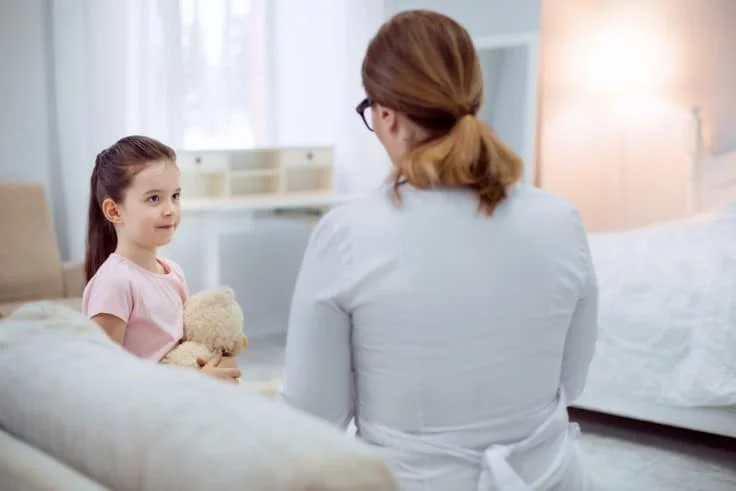Conscious parenting is a term used by some psychologists to describe a parenting style that focuses on the parent and how mindful they are in their interaction with their children. It is all about having a deeper connection with your child, nurturing their essence, and developing a more positive parent child relationship. This parenting philosophy is generated from a combination of Eastern-style philosophy and Western-style psychology (a combination of meditation and self-reflection).
Conscious parenting requires parents to let go of their egos, desires, and attachments. It advocates for parents not to force behaviors on their children but focus on their language, expectations, and self-regulation.
Proponents of this parenting philosophy believe that it prevents children from having an identity crisis in the future. They also believe that it creates a closer bond with children. They also say that the conditioning and authoritative parenting style is responsible for the large number of children distancing themselves from their parents.
Conscious parenting has a few elements that include these seven skills:
- Parenting should be a relationship whereby learning goes both ways. Children are a unique entity, and they can also teach a parent.
- Conscious parenting involves letting go of a parent’s ego, desire, and attachment.
- Conscious parents should not force behavior on children but focus on their language, expectations, positive emotion, and self-regulation.
- Parents should not react to issues with consequences. Instead, they should create boundaries in advance and use positive reinforcement.
- You should look at the process leading to a problem instead of the problem itself.
- When parenting, you should not only focus on making a child happy. Children can also grow and mature through struggles.
- To achieve acceptance, you should always be present and engage with whatever situation arises.
To be a conscious parent, you need to change how you view your child’s behavior and respond consciously to their needs and respond in the present moment.
As conscious parents, you have to confront your fears. You also have to stop expecting your fantasies to be met by your children. It is also important you realize that your children are not there to meet your needs or solve your pains. They are not there to help you carry your emotional baggage. You need to create healthy boundaries.
One key principle of conscious parenting is letting your children be themselves by letting go of your pre-constructed belief of what a perfect world is. Instead, you need to let your children explore the universe on their own and make their conclusions.
Conscious parenting means taking a back seat and letting your children paint their picture of the world even if it is not what you want.
Conscious parenting is not a guarantee of perfection as a parent. This parenting method is hard, and there is a chance you will make mistakes or fail. It is all about developing self-awareness and how your personality influences your children. It is all about doing your best not to transfer your issues, expectations, and pain to your children.
As a parent, you will inevitably convey minor issues; conscious parenting is realizing when it is happening and being able to check yourself and reform.
Why Practice Conscious Parenting?
Sometimes you find yourself saying something, and you immediately regret it because you “sound like your mother” and not in a good way – is why you should practice conscious parenting. Conscious parenting shields your children from your own issues, negative conditioning, negative emotion, and fears.
You could be battling anxiety, OCD, and depression, meaning you have a lot of baggage. You can unknowingly transfer some of that pain to your children.
Conscious parenting (also known as mindful parenting) helps you become less reactive or defensive than before when making parenting choices and interacting. You also become a better parent who is more objective, creating space for appropriate responses and avoiding ego-fueled reactions. However, to be self-aware, you need a lot of practice.
Here are some applicable ways to practice conscious parenting
Be Respectful When Speaking to Your Children

You should be very careful when speaking to your children. Your words, tone, and volume determines whether or not your children feel safe, respected, threatened, or degraded. To be conscious parents, you need to be aware of how you speak to your children.
You need to talk to your children the way you like people to talk to you. Talk to them with a comforting and patient tone of voice. Show compassion. You also need to use encouraging and empowering words, making sure you are respectful in your communication.
Manage Expectations
Conscious parenting aims at stopping you from projecting your own wants and needs onto your children. To achieve this, you need to manage your expectations. It is extremely rare for your child to do what you expect from them – how you want it and when you want it done.
You need to let go of your need to mold your child into who you want them to be and let them choose their own path. Having expectations on what your child should be or how they should act only means that what you want is right and anything else is wrong.
So, when your expectation is not met, you feel like you’ve failed, and the children feel like they have disappointed you. That feeling is right, but it is not the children’s fault- it is yours. You need to give your children space to be who they need to be without feeling disappointment or push back by you.
Work on Your Issues and Self-awareness
To be a conscious parent, you need to do a lot of work on yourself. To achieve self-awareness, you need to look deeper into your condition, negative patterns, and triggers. To be a mindful parent, you have to uncover old wounds and take time to heal them. There are a few ways to achieve self-awareness.
First of all, you can start by reading lots of self-development books. Reading books is cheaper than therapy but still useful in opening your eyes to new ideas, perspectives, and ways of identifying parts of yourself that need work or healing.
You can also start a meditation practice. A little stillness and silence can help you figure yourself out.
Finally, you can also use affirmations. You can look at affirmations as a gentle reminder of the truth. You can develop your own affirmations to help keep you in check.
To stop transferring your issues to your children, you need to be aware of the existence of such baggage. You need to take time and identify the issues and deal with them.
Create a Daily Routine
It is widely known that children are better off following a routine. It is recommended by many parenting books that having a schedule is an awesome way of bringing up children. But, you have to make sure there is a little room for flexibility.
A conscious parent is always aware of the daily activities. If your day is stressful and unpredictable, It can be difficult or impossible to remain mindful and self-aware. It will be easier to be aware of your actions and words towards your children if your daily activities follow a specific and familiar routine.
Remember Your Children’s Ages
Forgetting the age-appropriate behavior of your children can lead to discordance and struggles in the household. You need to have your children’s ages in mind before any reaction. Some behaviors are acceptable for children of a certain age group, but you might find yourself blowing things out of proportion.
When your toddler messes up, your basic instinct will be to get angry and yell. A conscious parent will take a mindful approach and realize the child is still young. Your child might be trying to explore different things as they should do at that age, and it does not require a harsh reprimand.
Instead, as a conscious parent, you can sit them down and slowly explain why it is wrong to behave in a certain way. Therefore, having your child’s age in mind always helps in putting things into perspective and avoiding conflict.
Do Not Compare Your Children
As a conscious parent, you need to be completely aware of your children’s individual needs and treat them accordingly. Avoid comparing your child to their siblings, friends, or other family members. Give your child the opportunity to grow into themselves and not feel like they are constantly being compared to other people.
You Should Show Empathy and Be Compassionate
To practice conscious parenting, you need to be conscious when you respond or react to ensure that you are empathetic and compassionate to your children whenever necessary. No child is perfect, and this includes your children.
When they make mistakes which they probably will, they will want comfort and some form of reassurance from a parent. You need to put yourself in your child’s shoes and imagine their emotions.
A perfect example is when your toddler spills juice on your best rag that is hard to clean. You will most likely get angry, act frustrated, and reprimand the toddler. It is highly unlikely they did it on purpose.
If it were you who made the same mistake, how would you feel when someone reprimanded you and made you feel even worse about the incident? It is always good to try and recognize when you are unfairly reacting to your child’s actions.
Teach By Example
A very effective way of teaching children is through example. Children at a younger age like copying what adults around them do mostly. You can use this opportunity to mold your child positively by doing good around them or towards them. If you want a child who is compassionate and patient, try to be compassionate and patient to them – even when it seems hard to do.
Design Healthy Habits
This is closely related to teaching your children by example. Your children will only get healthy habits if you design healthy habits for them. You can teach them how to respect themselves and their bodies by respecting your own body.
Conscious parenting is more about you than your children. You need to understand that modeling is not about forcing, controlling, or manipulating. It requires that your children observe you on their own and act accordingly.
Your children can not be physically active when all they see is you sitting on the couch all day. It also involves how you talk to yourself. Your children can not love themselves and develop a positive self-image if they constantly see you putting yourself down or using negative self-talk. In a nutshell, be aware of the habits you are portraying to your children.
Assign Your Children Responsibilities

Children need assurance that they can perform tasks that are worthy and useful. You can achieve this by giving your children responsibilities. The responsibilities will give them a feeling of independence and self-reliance.
Younger children can be given little tasks such as throwing trash away responsibly or putting their dirty laundry in the basket. Older children can be given a few chores in the house. To avoid push back from the older ones, you can have a discussion with them and allow them to choose chores they would prefer, thus giving them some control.
Slow Down
You need a slow pace when interacting with little children. Your children are still at a developmental stage, and they process information at a slower speed. Rushing them will not be beneficial.
Give your children an opportunity to answer your questions without interruption. They should be given time to make their own choices and let them be comfortable with their speed.
Children are masters when it comes to living in the moment. You should get to their level and experience the world from their perspective.




![7 Best Apps To Improve Self-Esteem : [How to Make 2023 Amazing] 7 7 Best Apps To Improve Self-Esteem [2022]](https://thinkpositivecheck.com/wp-content/uploads/2022/02/7-Best-Apps-To-Improve-Self-Esteem-2022-1024x576.png)